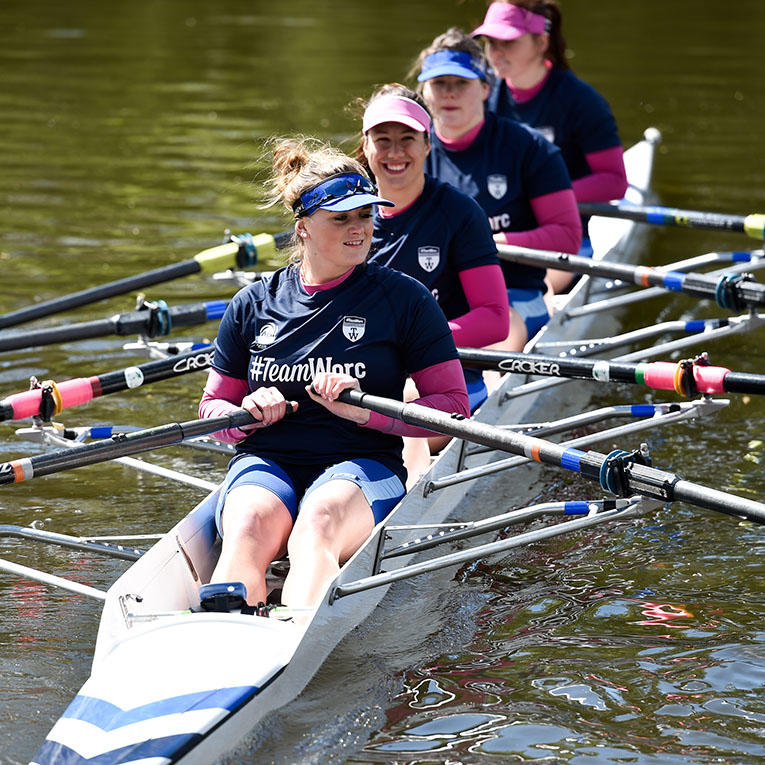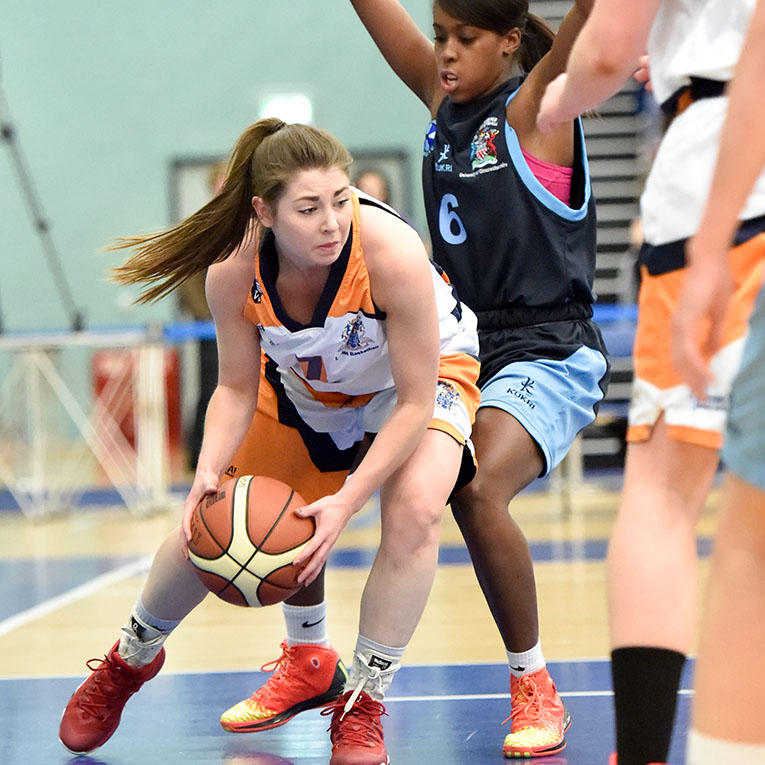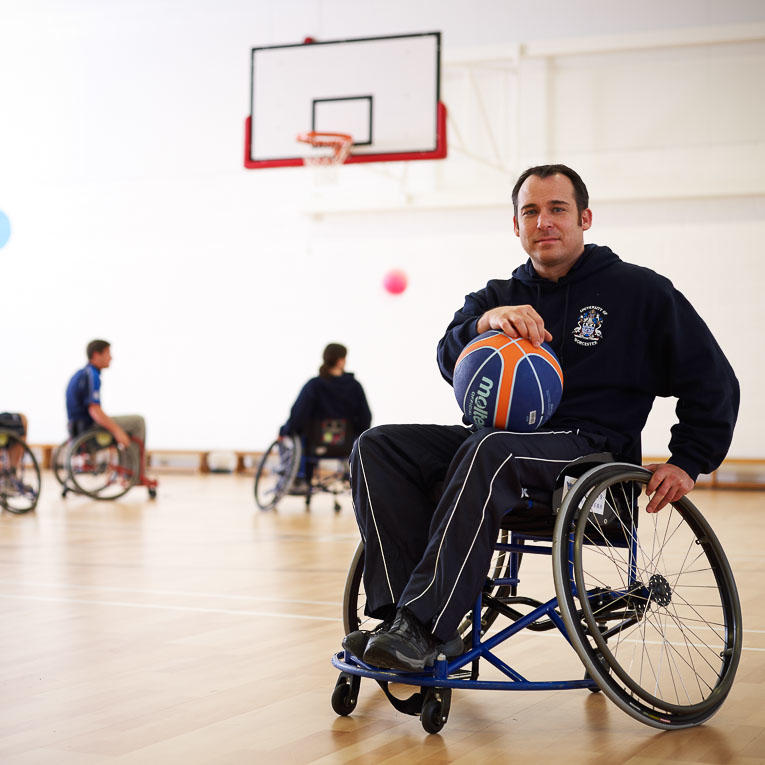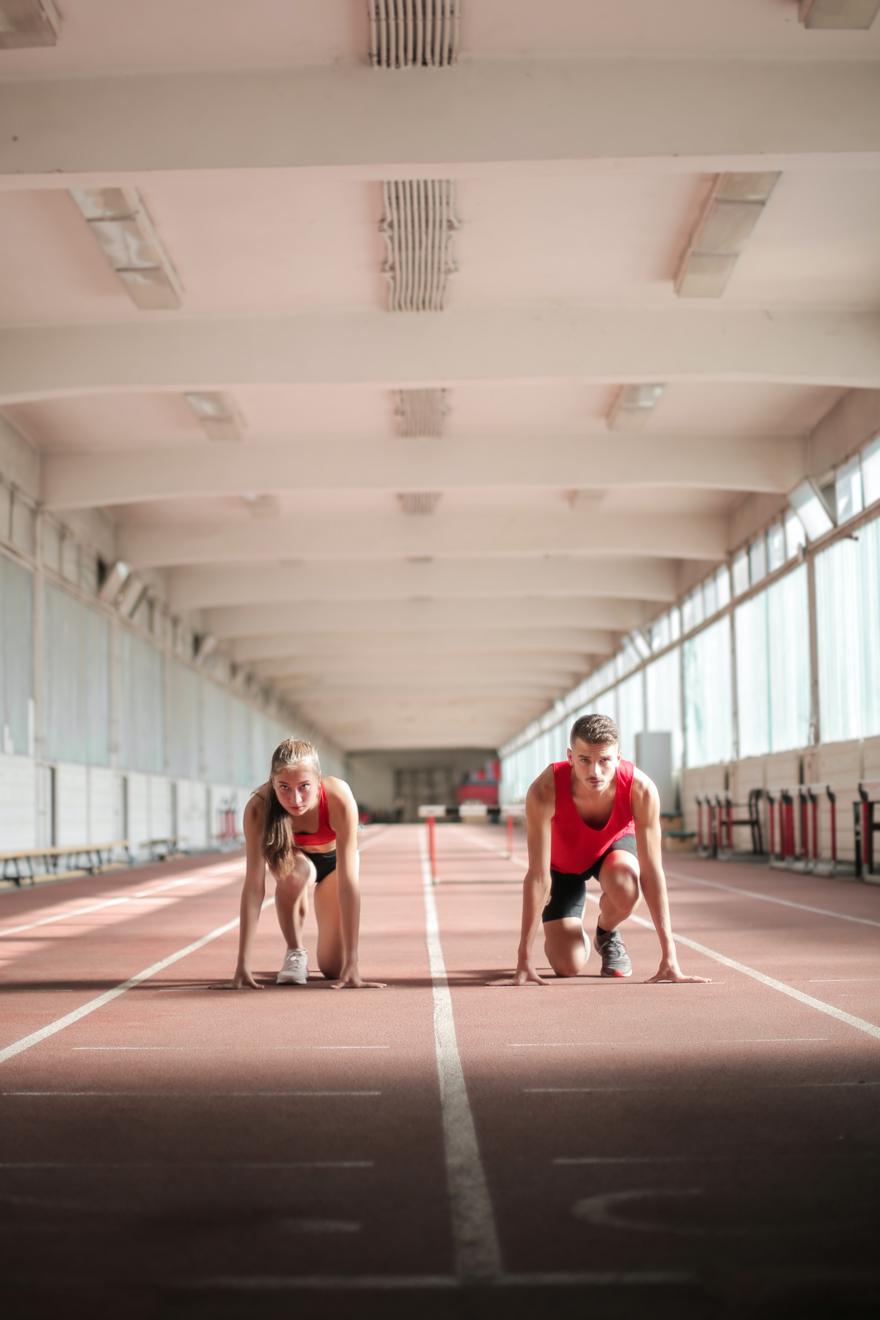Coaching and Performance
The Coaching and Performance Research Group is a multidisciplinary body of researchers and practitioners seeking to aid the advancement of the human performance from a wide range of perspectives.
���Ӷ���Ƶ the group

Through collaborative research with some of the UK's most influential sporting bodies such as UK Sport, UK Coaching and The Football Association, we seek to help better understand how coaches, sport scientists and other practitioners might help athletes to learn, develop and perform to their best.
Research themes
Professional learning journeys of coaches and Coach Developers
Research within this theme explores value creation in coaches' and Coach Developers' Landscapes of Practice. Group members work with a wide range of external partners to explore the planning, delivery and evaluation of formal, informal and non-formal experiences. Recent research has included the continuous evaluation of UK Sport's Coach Leader programme which sort to enhance the practice of some of Great Britain's leading coaches as they prepare for Tokyo 2021 and Beijing 2022.

Over the last five years, we have also planned, delivered, and evaluated a learning programme for Coach Developers within the Football Association.
In both of these projects we have sought to utilize the latest (fourth) iteration of Wenger-Trayner and Wenger-Trayner’s (2020) social theory of learning, drawing explicitly on the concepts of identity and boundary interactions.
By exploring the concepts of framing and learning loops within the Value Creation Framework we are privileged to help facilitate the ongoing professional development and practice of a wide range of coaches and Coach Developers across the UK.
Regulation of exercise performance
This work encompasses both internal regulatory process and the influence of other athletes during competition. Optimisation of exercise performance requires regulation of biological systems in a manner that realises physiological potential whilst avoiding catastrophic failure.
This is reliant on continual decision-making, whereby exercise participants must continually select between all available exercise intensities. This work explores the mechanisms informing this process from both internal physiological and psychological perspectives, and also through examination of the influence of environmental factors. As well as study of acute (single bout) doses of exercise, we aim to better understand longer term regulation linked to the training process.
Exercise performance, sports nutrition and muscle damage
This theme examines physiological responses and interventions to improve exercise performance and recovery. This includes thermoregulation and 'functional foods' in Sport and Exercise Science. Recent studies have examined physiological responses following intake of New Zealand blackcurrant and Matcha green tea.

Recent research has examined how we can use different strategies to alleviate and acclimate to undertaking exercise within hot environments to promote exercise performance. This is important when considering that recent and upcoming elite competitions are hosted in countries with hot climate (i.e., Gold Coast Commonwealth Games 2018 and the Olympics in Tokyo 20/21).
We are also interested in using nutrition to influence exercise performance and recovery, with studies examining the effects of New Zealand blackcurrant and Matcha green tea.
Upcoming research is also examined the effects of different interventions to promote recovery following muscle damaging exercise which could have implications for training advice and recovery for athletes.
Performance analysis
This theme explores an array of applied research in performance analysis with elite able-bodied and disabled sports teams.

Group members have provided support to a variety of teams across the English Football League and during six European Championships, three World Championships, one World Cup and a Paralympic Games.
Our research in performance analysis falls into two themes: “Profiling and Predicting Performance” and “Application of Performance Analysis into Practice”. Over the last five years, we have looked to profile and predict a range of performances in both able-bodied and disability sports. The knowledge gained, regarding the key technical and tactical determinants of success, has directly impacted on how teams prepare strategically for competition on the world stage.
More recently, we have also turned our attention to how the objective data and information gained from performance analysis is perceived and used by coaches, athletes, and member of the wider support team. This work has explored the importance of relationships, trust, micro-politics, and power in delivering an effective performance analysis provision that enhances learning and decision-making. By connecting these two broad themes, we have helped strengthen the awareness of performance analysis and lead to strategic changes at both national and international level.
Key Publications
Professional learning journeys of coaches and Coach Developers
- Vinson, D., Huckle, V. and Cale, A. (2020) Sports Coaching Review. ISSN 2164-0629 (In Press)
- Bradshaw, A., Vinson, D., & Cale, A. (2020). . Applied Coaching Research Journal, 5, 14-17.
- Navin, A., Vinson, D., Croad, A., Turnnidge, J. and Côté, J. (2020) The Sport Psychologist, 34 (3). pp. 220-231. ISSN 0888-4781 Online: 1543-2793
- Navin, A. and Vinson, D. (2020) International Journal of Applied Sports Sciences, 32 (1). pp. 69-90. ISSN 2233-7946 (Online) 1598-2939 (Print)
- Vinson, D. and Parker, A. (2019) Curriculum Studies in Health and Physical Education, 10 (1). pp. 91-106. ISSN Print: 2574-2981 Online: 2574-299X
Regulation of exercise performance
- Crivoi do Camo, E., Renfree, A. and Barroso, R. (2021) European Journal of Sport Science. ISSN Print: 1746-1391 Online: 1536-7290 (In Press).
- Renfree, A. (2020) The Sport and Exercise Scientist (66). pp. 20-21. ISSN 1754-3444.
- Renfree, A., Casado, A., Pellejero, G. and Hanley, B. (2020) International Journal of Sports Physiology and Performance, 15 (10). pp. 1369-1376. ISSN 1555-0265.
- Casado, A., Renfree, A., Maroto-Sánchez, B. and Hanley, B. (2020) European Journal of Human Movement, 44. pp. 146-161. ISSN 2386-4095 (eISSN).
- do Carmo, Everton, Renfree, A., Silva, Natalia, Gil, Saulo and Tricoli, Valmor (2020) International Journal of Sports Physiology and Performance, 15 (6). pp. 903-906. ISSN 1555-0265.
- Casado, A., Hanley, B., Jiménez-Reyes, P. and Renfree, A. (2020) Journal of Sport and Health Science. ISSN 20952546 (In Press).
- Veen, Jort, Corbett, Mark and Renfree, A. (2020) Journal of Human Sport and Exercise, 15 (2). pp. 319-329. ISSN Online: 1988-5202.
- Wei, C., Yu, L., Duncan, Benedict and Renfree, A. (2020) Frontiers in Physiology, 11. Article no. 197. ISSN 1664-042X.
- Gonzales-Mohino, F., Santos del Cerro, J., Renfree, A., Yustres, I. and González-Ravé, J.M. (2020) Journal of Human Kinetics, 71 (1). pp. 299-305. ISSN Print: 1640-5544 Online: 1899-7562.
- Martín, J.J.D., Renfree, A., Fernández-Ozcorta, E.J., Torres, M. and Santos-Concejero, J. (2019) Frontiers in Sports and Active Living, 1. Article 54. ISSN Online: 2624-9367
- Hanley, B., Casado, A. and Renfree, A. (2019) Frontiers in Sports and Active Living. ISSN Online: 2624-9367
- Casado, A., Moreno-Pérez, D., Larrosa, M. and Renfree, A. (2019) European Journal of Sport Science, 19 (8). pp. 1045-1052. ISSN Print: 1746-1391 Online: 1536-7290.
Exercise performance, sports nutrition and muscle damage
- Cook, M., Sandhu, A. and Joyce, J. (2020) Journal of Nutrition in Gerontology and Geriatrics, 39 (2). pp. 99-113. ISSN Print: 2155-1197 Online: 2155-1200.
- Thomas, G., Cook, M., Duncan, B., Bevins, J., Corbett, M. and Warren, M. (2020) The Sport and Exercise Scientist (63). pp. 20-21. ISSN 1754-3444.
- Steward, C., Zhou, Y., Keane, G., Cook, M., Liu, Y. and Cullen, T. (2019) European Journal of Applied Physiology, 119 (11-12). pp. 2617-2627. ISSN Print: 1439-6319 Online: 1439-6327.
- Willems, M.E., Şahin, M.A., Berendsen, T. and Cook, M. (2019) Sports, 7 (3). e67. ISSN 2075-4663.
- Gibson, O.R., James, C.A., Mee, J., Willmott, A.G.B., Turner, G., Hayes, M. and Maxwell, N.S. (2019) Temperature, 7 (1). pp. 3-36. ISSN Print: 2332-8940, Online: 2332-8959.
- Zurawlew, M.J., Mee, J. and Walsh, N.P. (2019) Frontiers in Physiology, 10 (1080). ISSN Online: 1664-042X.
Performance analysis
- Francis, J., Owen, A. and Peters, D.M. (2021) PLoS One, 16 (1). ISSN Print 1932-6203 Online 1932-6203.
- Loo, J.K., Francis, J. and Bateman, M. (2020) International Journal of Performance Analysis in Sport, 20 (6). pp. 960-981. ISSN 1474-8185
- De Martin Silva, L. and Francis, J. (2020) International Sport Coaching Journal. ISSN Print 2328-918X Online 2328-9198 (In Press)
- Bateman, M. and Jones, G. (2019) Frontiers in Psychology, 10 (2064). ISSN Online: 1664-1078
- Francis, J. Owen, A. and Peters, D.M. (2019) Frontiers in Psychology, 10. p. 1431. ISSN Online: 1664-1078
- Francis, J., Owen, A. and Peters, D.M. (2019) Frontiers in Psychology, 10. Article-16. ISSN Online: 1664-1078
Current opportunities
-
Fully-funded PhD studentships with the Coaching and Performance Research Group will be advertised here.
Approaches from self-supporting PhD students are accepted all year round. Please contact Dr Matthew Cook for an informal discussion.
Get in touch
For more information on our research or opportunities please get in touch with Don at: d.vinson@worc.ac.uk